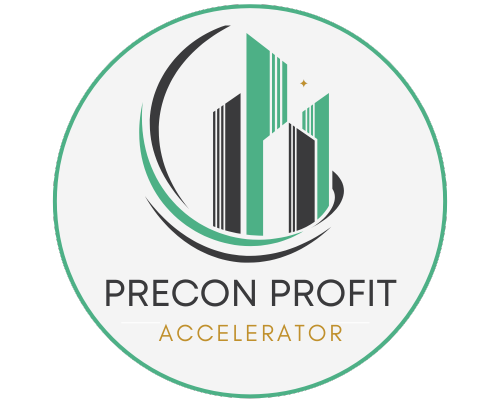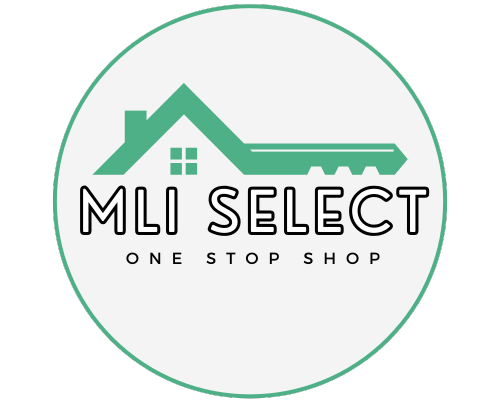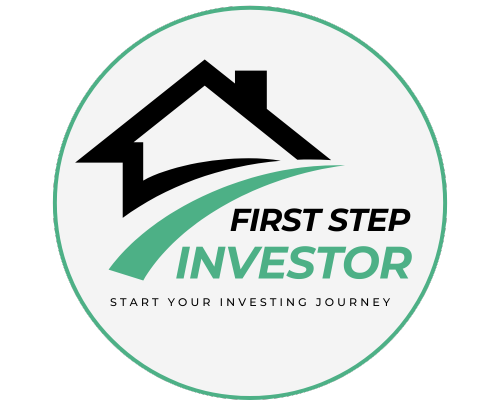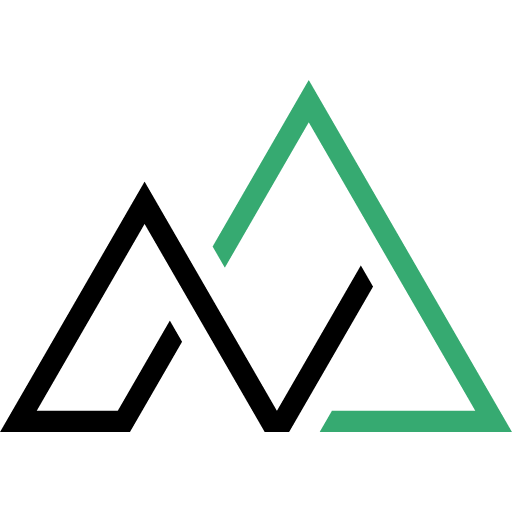Partnership Programs
Exclusive Programs For All New Homes Alberta Clients
You’re not just here to dabble in real estate—you’re here to succeed, to grow your wealth, and to secure your financial future. That’s why New Homes Alberta is the only place you should be. Our programs are not for everyone. They’re for those who want the inside track, the best deals, and the most effective strategies for building real estate wealth.
We’ve crafted each of our programs with a single purpose: your success. We don’t just offer you properties—we offer you the tools, the expertise, and the exclusive opportunities that only a few investors ever get access to. Why? Because we care about seeing you win. And when you partner with New Homes Alberta, you’re stepping into a world where your success becomes our mission.

- Preconstruction Investors
Access to the best preconstruction projects, cashflow projections, and exclusive deals before anyone else.

- High Net Worth Investors
Details and access to highly sought after MLI Select projects, incentives, and investment strategies experienced buyers.

- Newer Investors
If you are new to investing we can guide you through the entire process and help you identify the best strategy for you!

Precon Profit Accelerator
You’ve been in the game long enough to know the truth: the early bird gets the best deal. The Investor Insight Program is for the savvy investor who understands the power of preconstruction properties. You need first access, insider knowledge, and the ability to act before the masses even know what’s available.
What’s waiting for you in this program?
- Exclusive Early Access to Preconstruction Projects: While everyone else is still looking, you’re already investing.
- Done-for-you Investor Analysis: Don’t waste time crunching numbers. We’ve already done it for you. You just make the move.
- Expert Preconstruction Mortgage Guidance: No guessing. No wondering if you can get the deal. We make sure you do.
- Future Development Insights: You’ll always be two steps ahead of the market. No more catching up—you’ll be leading it.
This program is for the investor who’s ready to dominate the preconstruction space and maximize returns.
Precon Profit Accelerator

You’ve been in the game long enough to know the truth: the early bird gets the best deal. The Investor Insight Program is for the savvy investor who understands the power of preconstruction properties. You need first access, insider knowledge, and the ability to act before the masses even know what’s available.
What’s waiting for you in this program?
- Exclusive Early Access to preconstruction projects: While everyone else is still looking, you’re already investing.
- Done-for-you investor analysis: Don’t waste time crunching numbers. We’ve already done it for you. You just make the move.
- Expert preconstruction mortgage guidance: No guessing. No wondering if you can get the deal. We make sure you do.
- Future development insights: You’ll always be two steps ahead of the market. No more catching up—you’ll be leading it.
This program is for the investor who’s ready to dominate the preconstruction space and maximize returns.
MLI Select: One-Stop-Shop
You didn’t get where you are today by settling for the average. You expect elite-level opportunities, and that’s exactly what the Elite Wealth Program offers. With a focus on the MLI Select program, this is where high net worth investors come to play for the long term, investing in projects with massive upside and government-backed advantages.
What do you get as part of this one-stop-shop?
- VIP Access to MLI Select Investments: Be at the forefront of high-value projects that offer both significant returns incentives.
- Exclusive Investment Opportunities: These aren’t just any properties—these are handpicked, premium assets designed for wealth accumulation.
- Mortgage Brokers and Professionals: It takes a very particular skillset to know the ins and outs of this program. We have the team you need to succeed.
- Bespoke Financial Strategies: You won’t be guessing with your money. Every move is strategically crafted to maximize your wealth.
This program is for the investor who’s ready to dominate the preconstruction space and maximize returns.

MLI Select: One-Stop-Shop

You didn’t get where you are today by settling for the average. You expect elite-level opportunities, and that’s exactly what the Elite Wealth Program offers. With a focus on the MLI Select program, this is where high net worth investors come to play for the long term, investing in projects with massive upside and government-backed advantages.
What do you get as part of this one-stop-shop?
- VIP Access to MLI Select Investments: Be at the forefront of high-value projects that offer both significant returns incentives.
- Exclusive Investment Opportunities: These aren’t just any properties—these are handpicked, premium assets designed for wealth accumulation.
- Mortgage Brokers and Professionals: It takes a very particular skillset to know the ins and outs of this program. We have the team you need to succeed.
- Bespoke Financial Strategies: You won’t be guessing with your money. Every move is strategically crafted to maximize your wealth.
This program is for the investor who’s ready to dominate the preconstruction space and maximize returns.

First Step Investor Program
Getting started in real estate investing doesn’t have to be overwhelming. The First Step Investor Program is designed to guide new investors through their first property purchase with ease and confidence. We provide you with the foundational knowledge, support, and resources you need to make informed investment decisions that will set you up for long-term success.
What’s waiting for you in this program?
- Beginner-Friendly Guidance: We simplify the process of real estate investing, breaking it down into easy-to-understand steps.
- Personalized Investment Analysis: Get clear advice on where to start, which properties to consider, and how to finance your first investment.
- Access to Low Cost Investment Properties: We’ll help you identify affordable and high-potential properties suited for first-time investors.
- Ongoing Support: You’re not alone—we’re with you through every step of your first investment, providing the tools and insights needed for growth.
If you’re ready to take your first steps into real estate investing, this program gives you everything you need to get started and succeed.
First Step Investor Program

Getting started in real estate investing doesn’t have to be overwhelming. The First Step Investor Program is designed to guide new investors through their first property purchase with ease and confidence. We provide you with the foundational knowledge, support, and resources you need to make informed investment decisions that will set you up for long-term success.
What’s waiting for you in this program?
- Beginner-Friendly Guidance: We simplify the process of real estate investing, breaking it down into easy-to-understand steps.
- Personalized Investment Analysis: Get clear advice on where to start, which properties to consider, and how to finance your first investment.
- Access to Low Cost Investment Properties: We’ll help you identify affordable and high-potential properties suited for first-time investors.
- Ongoing Support: You’re not alone—we’re with you through every step of your first investment, providing the tools and insights needed for growth.
If you’re ready to take your first steps into real estate investing, this program gives you everything you need to get started and succeed.
Wanting to join one of our investor programs?
Contact us today and we can help you get started on your investing journey!
What You Need to Know About Investing Remotely In Calgary
Investing from out of province works the same as if you were standing in Calgary in-person yourself and everything can be done remotely, including management of the unit! You never have to go to Calgary or even see the unit you purchased.
Once you’ve decided on a unit, simply submit a Suite Reservation Form or “Worksheet” containing necessary details such as your legal name, address, contact information, occupation, employer, and a valid identification photo (usually a driver’s license or passport). This aids the developer in preparing the purchase agreement and helps me keep track of additional preferences like parking, locker purchase, multiple purchasers, or the inclusion of a Holding Company in the agreement.
In some cases, time is of the essence, requiring swift action within minutes to secure your unit. Pre-submitting a unit registration form allows for instant reservation, bypassing potential delays associated with waiting for form submission. The process is quick, taking less than 5 minutes to complete. Access the form here:
Upon receipt of your submitted information, the developer promptly generates your purchase agreement, often completing the Agreement of Purchase and Sale (APS) within 24 hours due to its largely automated nature. It’s crucial to sign the agreement within 24 hours of receiving it, as failure to do so may result in the developer voiding the contract and reclaiming the unit. This practice helps sift out individuals who are not genuinely committed to the purchase process and initiates the “clock” for the 10-day cooling period.
In the fast-paced world of real estate, some developments can sell out within mere hours, leaving little time for thorough due diligence. Thankfully, Alberta law provides a safety net in the form of a 10-day cooling period, allowing buyers to back out of a deal without penalty for any reason. This 10-day period, which includes weekends and holidays, begins the day you sign the agreement. Should you choose to exercise this option, simply send an email to the builder to inform them of your decision to withdraw from the purchase – no complicated forms required.
While not mandatory for purchasing a pre-construction property, engaging a lawyer at closing is advisable. It’s prudent to have your purchase agreement reviewed within the cooling-off period to ensure there are no deal-breaking clauses or terms you find unacceptable. Despite limited room for negotiation, legal insight can be invaluable, given that contracts typically favor the developer’s interests.
In Alberta, where nuances in real estate law vary from other provinces, a lawyer familiar with local regulations can provide essential guidance. For instance, terms like “duplex” and “occupancy” may carry different meanings across jurisdictions. Additionally, to facilitate property closure, your lawyer must have access to the province’s land titles registration system. If you already have legal representation, it’s worth confirming their capabilities; otherwise, I can assist in referring you to a suitable lawyer.
When purchasing a pre-construction unit, securing a mortgage is only necessary at the closing stage, not during the initial purchase. In Alberta, the mortgage application process mirrors that of other provinces, with major banks and financial institutions operating nationwide.
Although an actual mortgage is obtained at closing, many developers require a mortgage pre-approval within the cooling-off period. This preliminary approval assesses your financial status, including employment, income, debts, and real estate holdings, without conducting a credit score check.
Obtaining a mortgage pre-approval should be your first step before exploring properties, as it determines your borrowing capacity and budget. It’s crucial to align your property search with your financial capabilities to avoid disappointment.
The actual mortgage financing is contingent upon your financial situation at closing, which could be several years away. Due to Covid-related delays, banks may experience backlog, underscoring the importance of early mortgage organization to avoid penalties and fees.
While not all mortgage brokers can facilitate mortgages in Alberta, I collaborate with trusted partners who can assist seamlessly. Feel free to reach out for a referral if needed.
It’s important to note that for traditional mortgages from any bank in Canada, a minimum 20% down payment is required for rental properties. If you’ve put down a 10% deposit with the developer, you’ll need to provide an additional 10% at closing, as all deposits count towards the 20% requirement. Any claims of less than 20% down payment typically apply to owner-occupied homes requiring CHMC insurance or may be misleading.
While some developers may accept post-dated personal cheques, in most cases, deposits must be made using one of the following methods:
Wire Transfer: Visit your local bank to wire the funds directly to the developer’s lawyer, incurring approximately a $50 fee.
Bank Draft (MOST COMMON): Obtain a bank draft from your local bank and deposit it into the developer’s lawyer’s bank account, typically BMO or TD, with a cost of about $8.
Deposits are safeguarded by provincial law and held in-trust by the developer’s lawyer. In the event of building cancellation or developer bankruptcy, your deposits are protected, ensuring their return.
Please Note: I am not a tax expert, so I recommend consulting with your accountant for personalized advice.
In Alberta, buyers from other provinces do not incur any special taxes or fees. Alberta offers several advantages for real estate investment:
• NO FOREIGN BUYER TAX: Regardless of residency, Canadian citizens and permanent residents can purchase real estate in Alberta without paying any special “foreign” taxes.
• NO LAND TRANSFER TAX: Unlike in provinces like BC and Ontario, Alberta does not impose specific taxes related to real estate transactions. This results in significant savings, such as avoiding the hefty $32,950 tax on a $1M property sale in Toronto. There is only a nominal Property Registration Fee, typically a few hundred dollars.
• NO DEVELOPMENT CHARGES: Unlike other regions, Alberta, particularly Calgary, does not levy development charges, which are essentially taxes imposed by local municipalities to fund infrastructure projects.
• NO PROVINCIAL SALES TAX: Alberta imposes only a 5% sales tax on goods and services purchased, making it an attractive location for buyers.
Regarding income taxes on property appreciation upon sale, the rules are determined by the Canada Revenue Agency (CRA), a federal entity. The treatment of income and capital gains is uniform across provinces.
All new homes in Alberta are covered by the Alberta New Home Warranty Program – this provides coverage for a 10 year period:
• 1 YEAR – MATERIALS & LABOUR: Coverage for defects in materials and labour (baseboards, flooring, trim, and paint).
• 2 YEAR – DELIVERY & DISTRIBUTION SYSTEMS: Coverage for defects in materials/labour related to delivery & distribution systems (heating, electrical and plumbing systems).
• 5 YEAR – BUILDING ENVELOPE: Coverage for defects in the system of components that separate the conditioned space from unconditioned space (roof, exterior walls).
• 10 YEAR – STRUCTURAL: Coverage for the load-bearing parts of the home (frame, foundation).
Prior to closing on the unit, there will also be an Occupancy Inspection to walkthrough the property to inspect for any deficiencies. You can do this yourself, you can send someone anyone to do it on your behalf, or you can have a building designate walk you through the inspection remotely on a Zoom call. There are always “deficiencies” that the builder will fix and touch up and some seasonal items and exterior work may not be able to be completed until later (e.g. pouring concrete, landscaping, etc.)
Many of my clients invest in units located outside their residing cities. While some opt to manage their units independently, the convenience of online ordering makes this feasible, especially for condos where issues typically involve a plumber or locksmith.
For remote investors, hiring a property management company is often the wisest choice. These professionals handle tenant communications, payments, compliance with statutory regulations, maintenance, repairs, and day-to-day management, requiring your involvement only for major decisions or invoice payments.
In Alberta, property management fees typically amount to 10% of gross rent plus GST, although rates as low as 6% are not uncommon. I advise using 10% for financial analysis purposes.
For clients who prefer a hands-on approach, I suggest initially managing the unit independently for a few months to gauge feasibility. Should challenges arise, you can always enlist the services of a property manager later.
In Alberta, rental units are primarily managed by property management companies, unlike Ontario and BC where real estate agents often handle rentals. These companies oversee the listing, advertising, and coordination of showings, as well as conduct due diligence on prospective tenants, including employment verification, reference checks, social media screening, and credit score assessment. The standard charge for their services is typically 1/2 of a month’s rent plus GST, whereas in the Greater Toronto Area (GTA), it’s typically a full month’s rent.
Your role in the rental process should mainly involve reviewing the due diligence provided by the property management company for prospective tenants and giving your approval.
At the time of closing, all associated activities can be conveniently conducted remotely, including signing paperwork with the lawyer, coordinating the mortgage with the broker, organizing insurance, and taking possession of the unit and keys.
Closing costs, which encompass the fees and expenses linked to transferring legal title to your name, vary significantly between Ontario/BC and Alberta. Below is a comparison of closing costs for a $500,000 one-bedroom pre-construction condo in Calgary versus Toronto:
TYPICAL CLOSING COSTS IN CALGARY:
- Land Transfer Tax: $0
- Development Charges: $0
- Lawyer & Legal Fees: $1,250
- Title Insurance: $250
- Registration Fees: $420
- GST Rebate: $0*
- TOTAL: $1,920
CLOSING COSTS IN TORONTO:
- Land Transfer Tax: $12,950
- Development Charges: $15,000
- Lawyer & Legal Fees: $1,000
- Title Insurance: $200
- Miscellaneous Fees: $1,500
- HST Rebate: $24,000**
- TOTAL: $54,650
- There is a 36% GST rebate up to $6,300 in Alberta, but it’s subject to a sliding scale and completely phased out at $450k.
** Upon renting out the unit for at least a one-year term in Ontario, you can apply for the HST Rebate, and it’s common to receive the full $24k rebate, making it more of a cash flow issue than a true expense.
